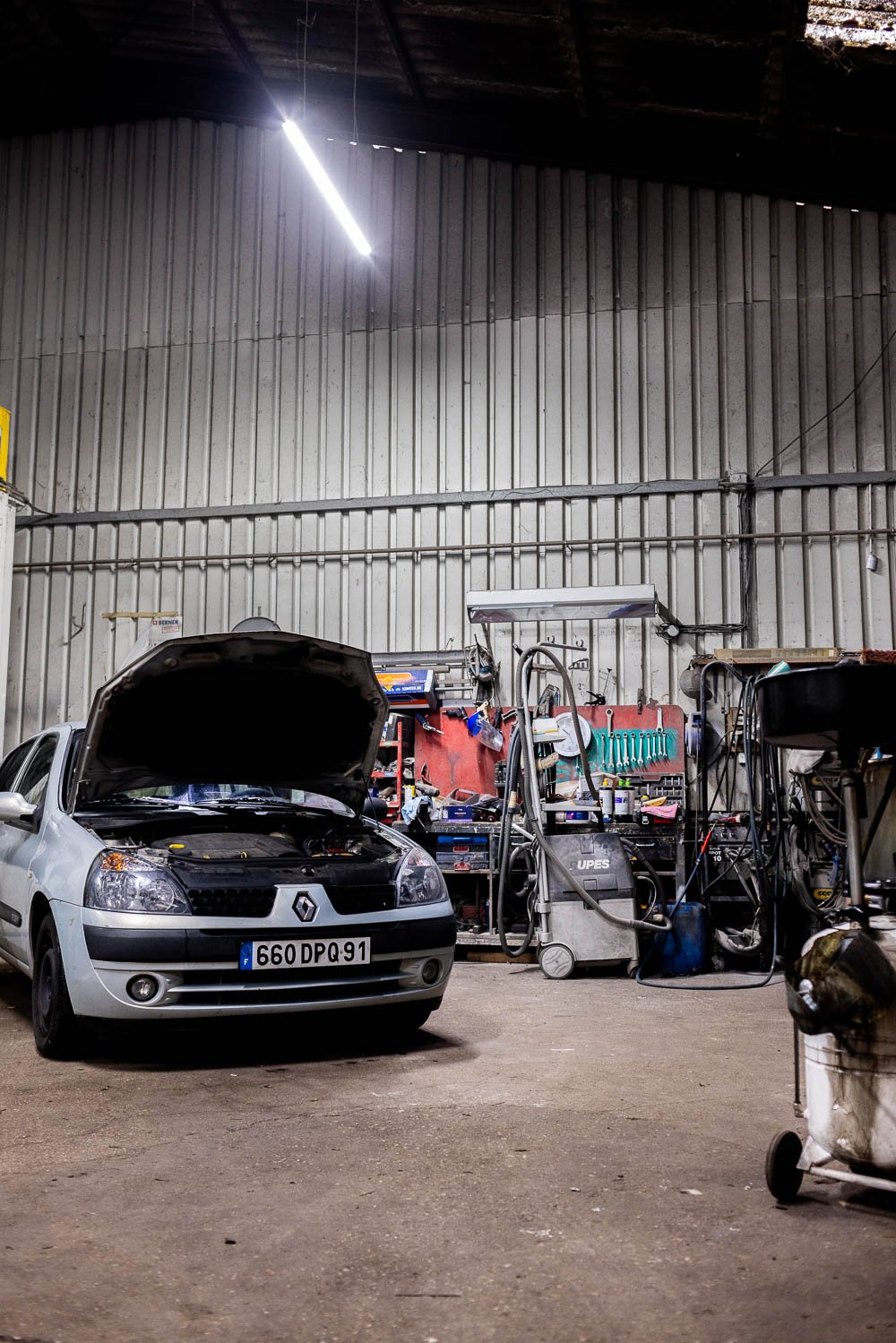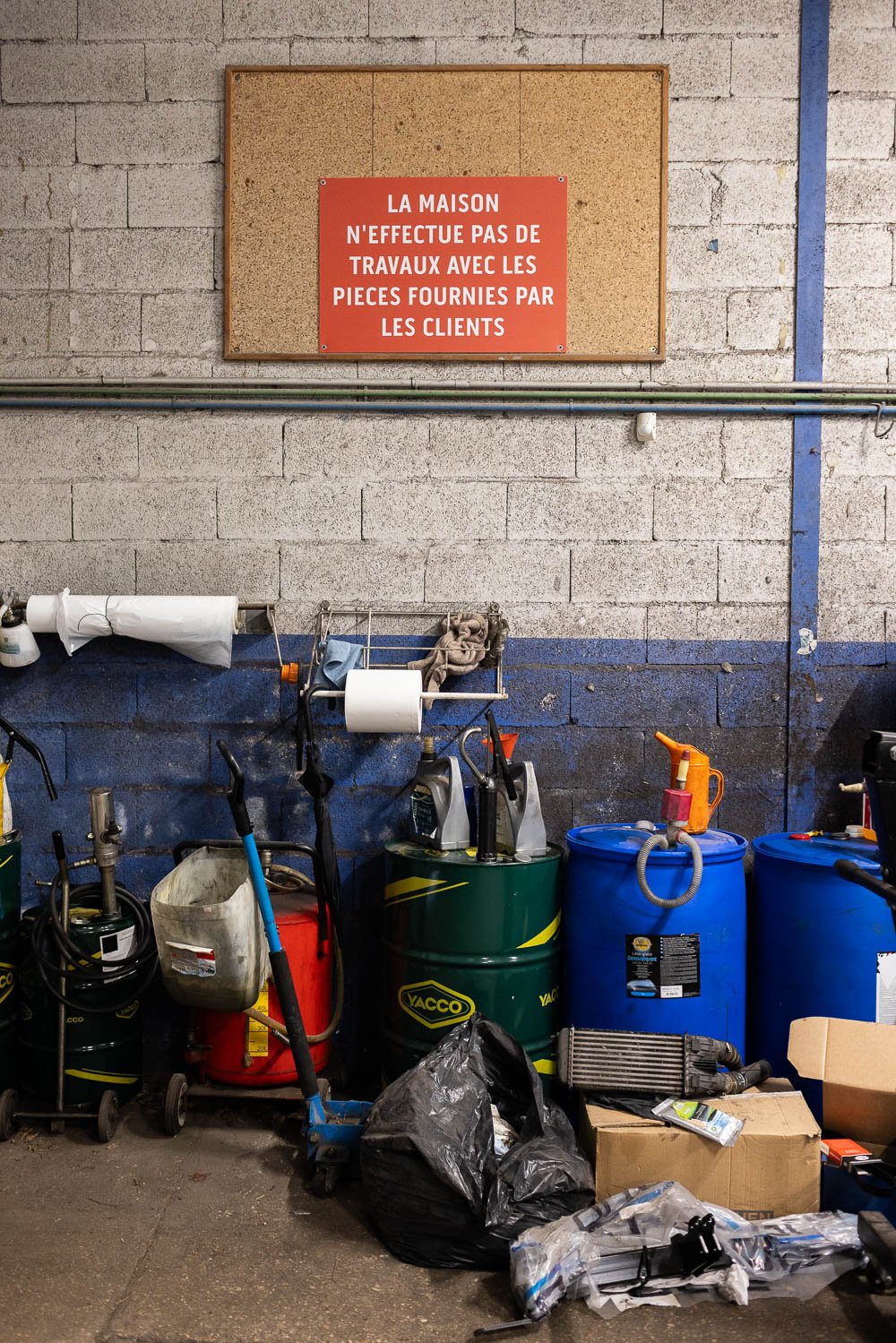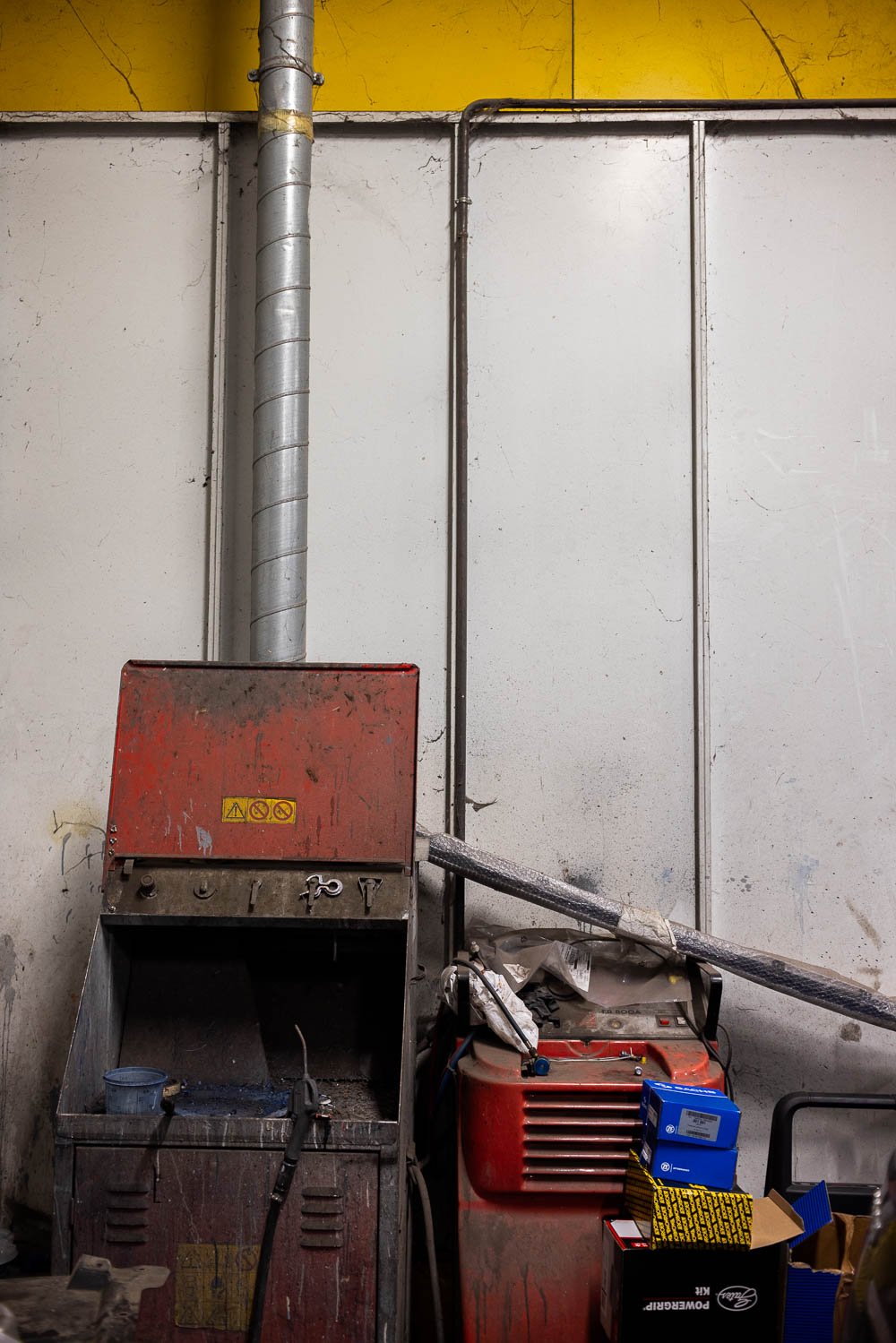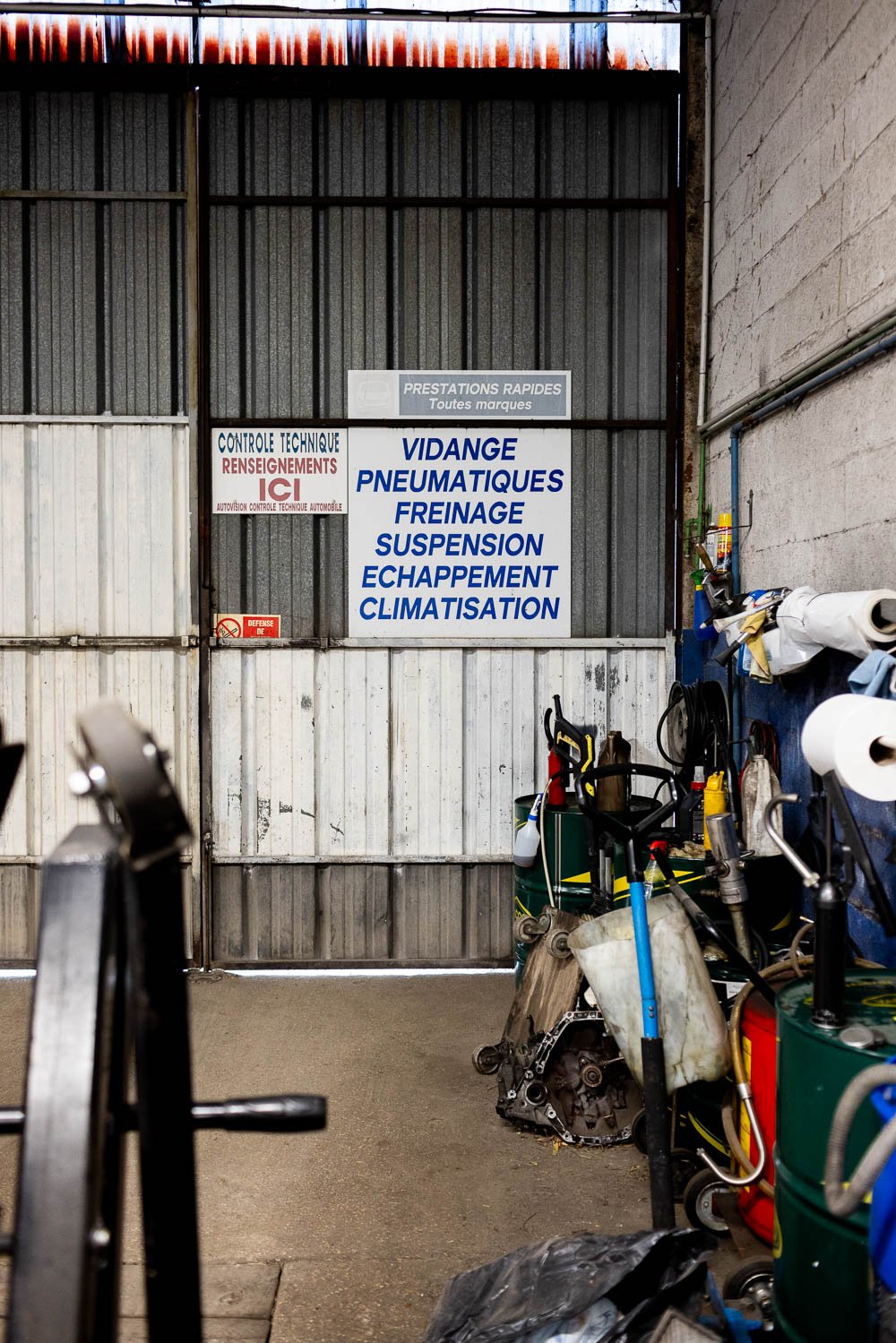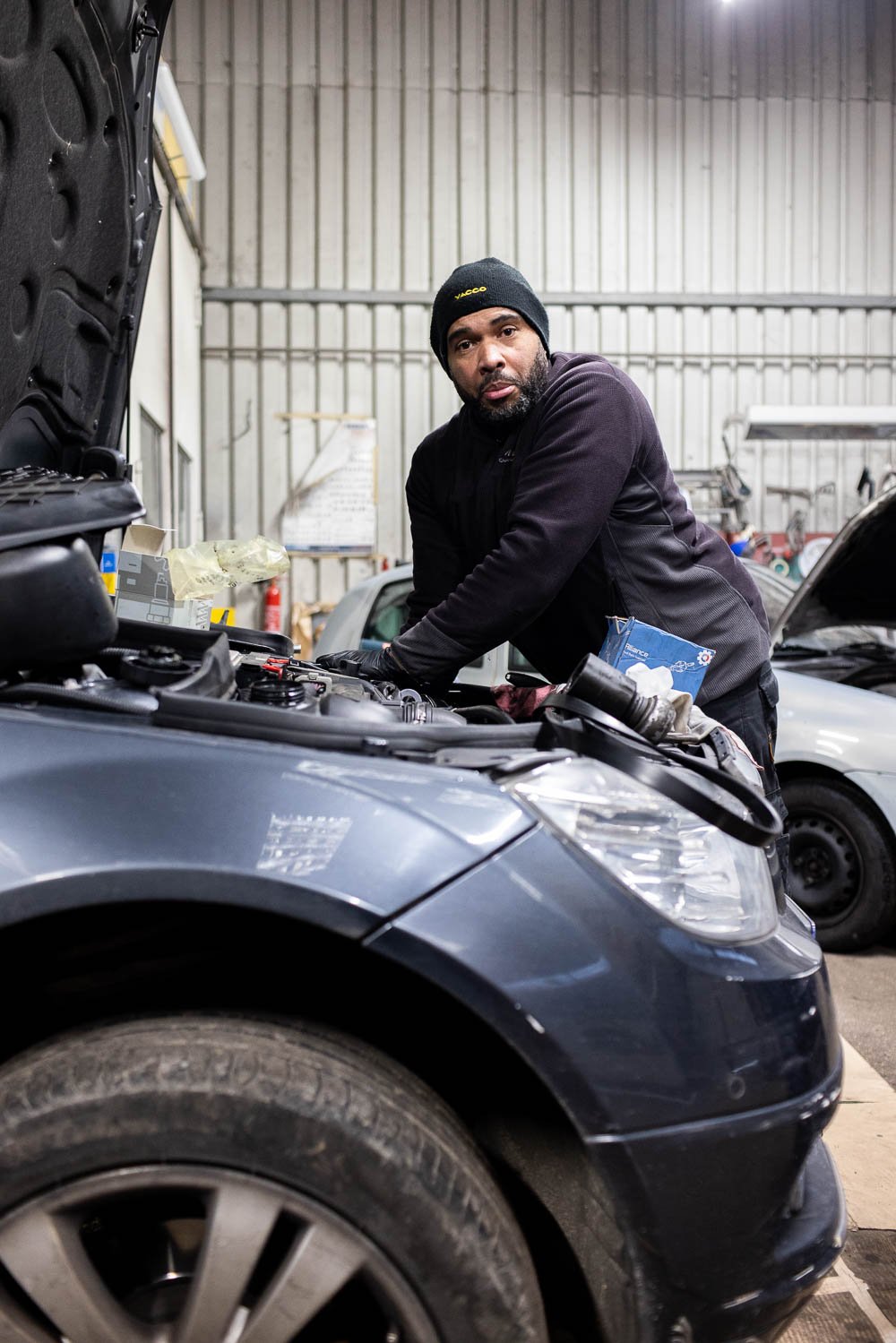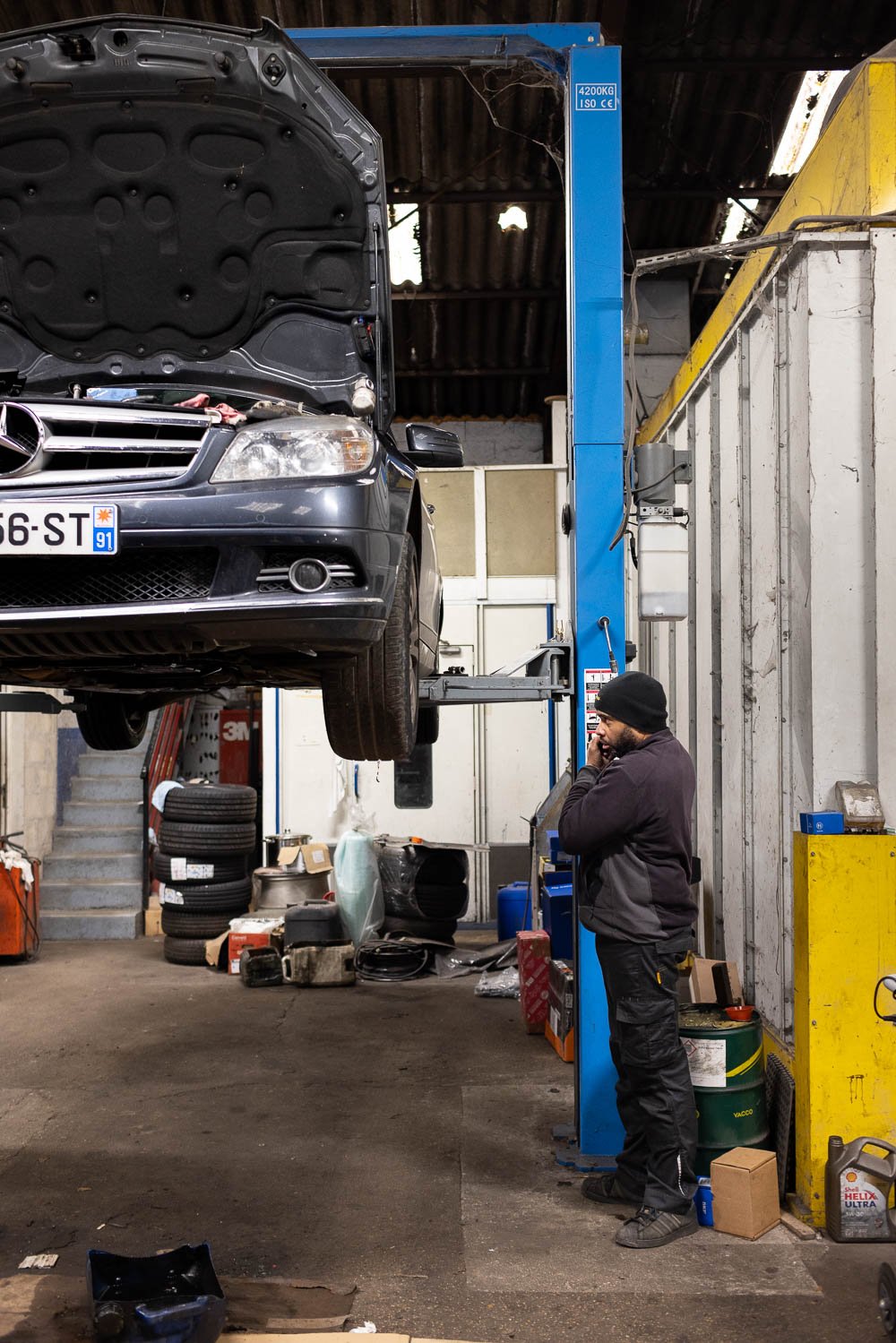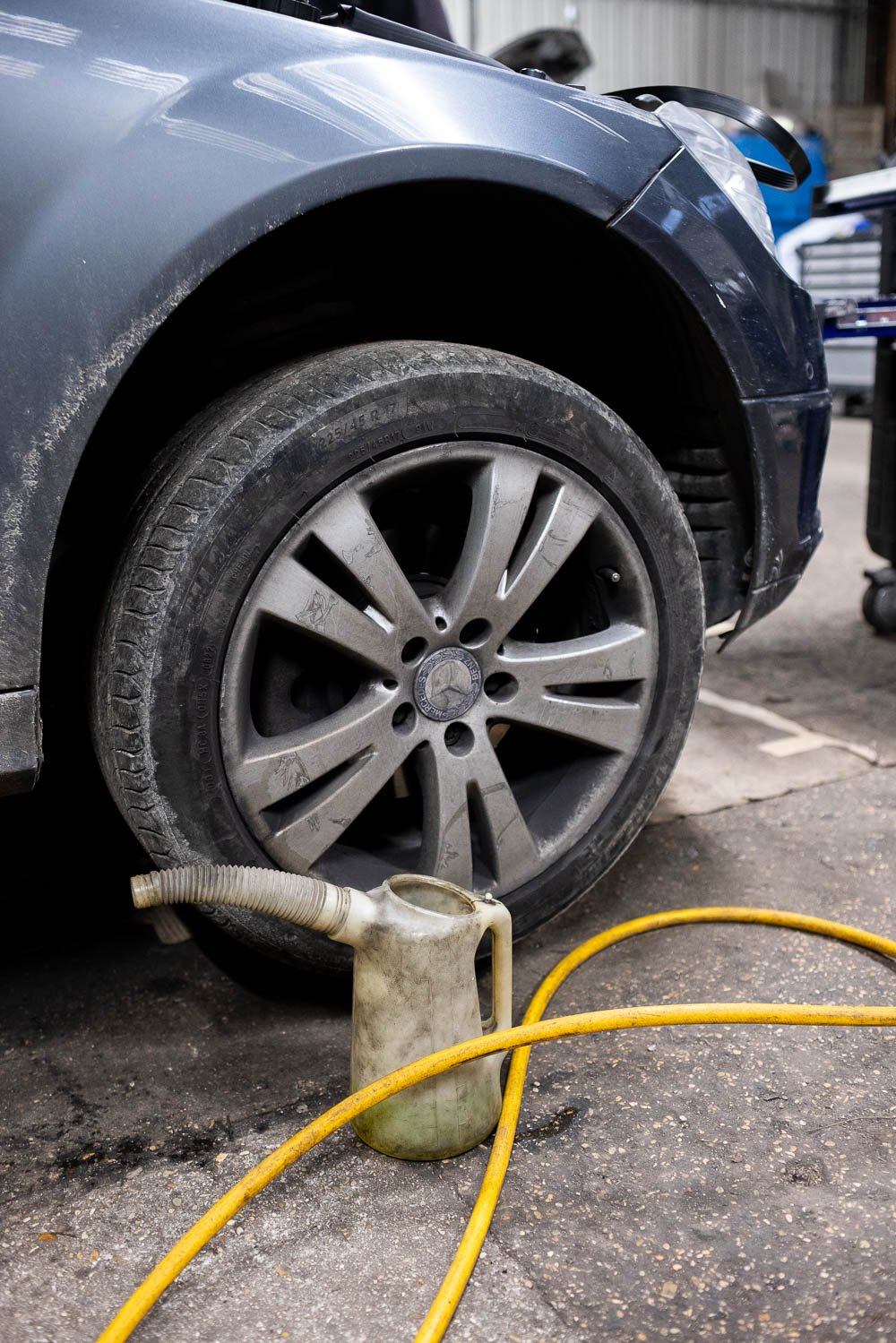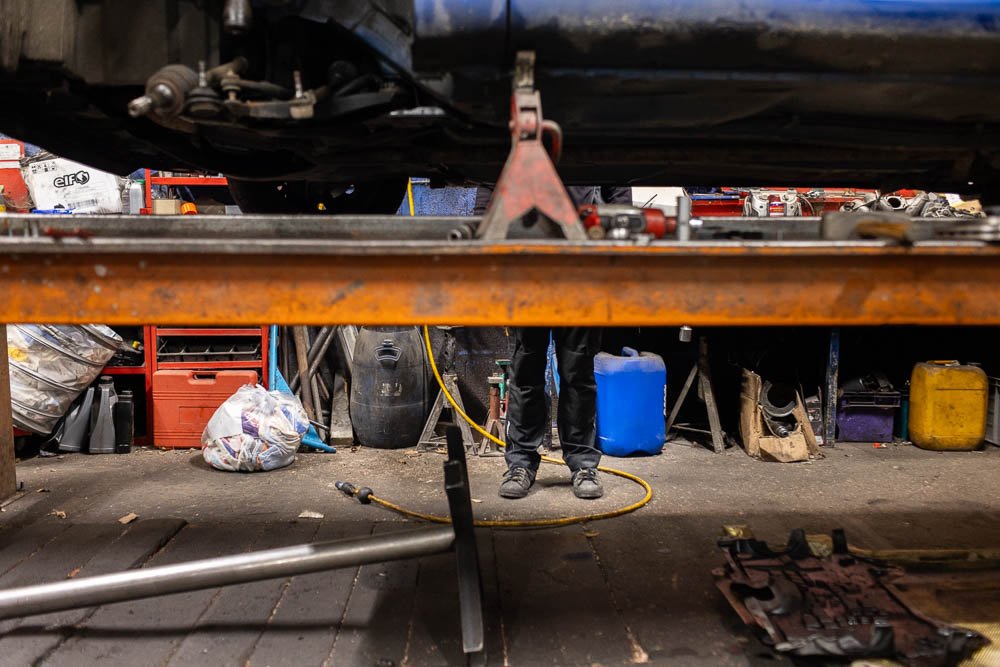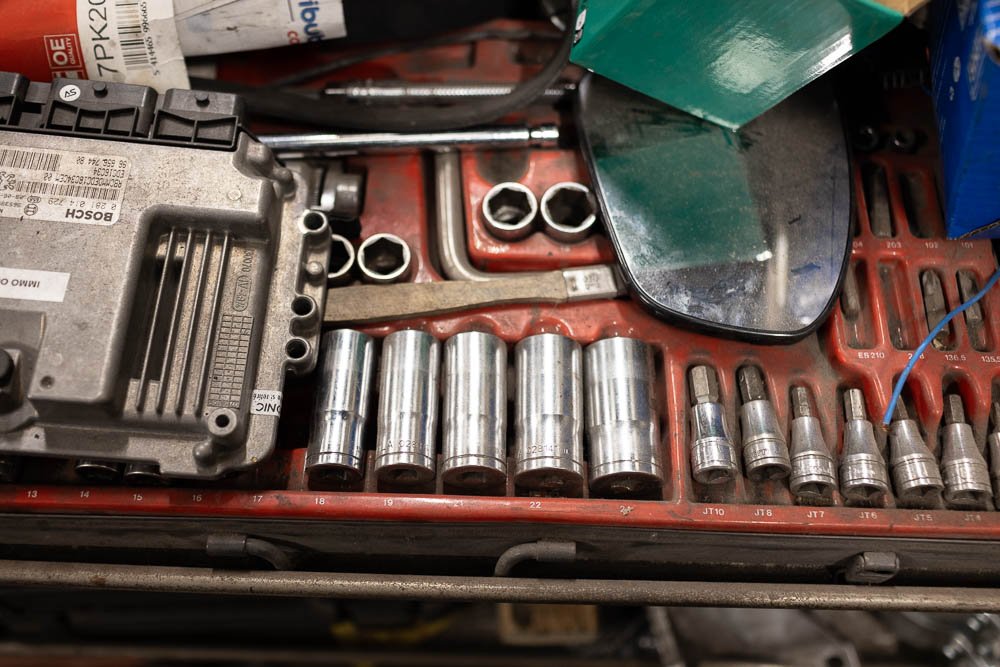Mechanics Stories: declining craftmanship

Join BAMM’s first mechanics story where our documentary photographer Hélène Jeunet uncovers the trends, innovations and expectations that will shape the mechanic’s profession in the dynamic landscape of tomorrow’s mobility.
As e-mobility gains traction, the question whether there will be a future for traditional auto mechanics rises. As we progress further, it’s likely that craftsmanship will be replaced by tech oriented skills. Or as Mika, a mechanic I recently met, said:
“The next generation of mechanics will be sitting behind computer screens and won’t need to lift a car hood anymore. They won’t get their hands dirty.”
It’s on a quiet street corner in Fontenay le Vicomte, France, that I spotted the faded signpost ‘Garage du Chateau’. In the courtyard I started to walk toward a big slightly open metal gate. Inside, its owner Mika was working on the front of a Renault car. As I entered his workshop a strong feeling of nostalgia hit me and I couldn’t help but ask, “Is it a family business?”
“Well, you could call it that. I bought the garage in 2004 from a retired mechanic. My dad was himself a mechanic. As a child I was always by his side.”
The garage itself looks like an old whitewashed barn and once inside, my nostrils are filled with the familiar and characteristic smell of gasoline. There's something reassuring about that smell, the roaring sound of a car engine and the stains of grease on fabric towels left all around the workshop. And there’s something reassuring about Mika’s facial expression, something telling me that he is a master of his craft - someone who has put in their proverbial 10,000 hours.
Mika’s garage gave me the urge to observe every detail - from the stillness of a hand towel that will soon be fully stained to the outdated calendar discreetly hanging on the wall; a reminder of all of the stereotypes we think about when it comes to mechanics.
While I asked him about his views on the future of the automotive industry and how he feels about potentially becoming the one who will know less about cars, my thread of thoughts go down memory lane and I confide to him how much I miss seeking movie recommendations at my local Blockbuster as a child. These days, Rotten Tomatoes advises me.
“Don’t get me wrong”, he says. “As a kid I was dreaming about flying cars and I’m impressed to see that we now have 100% autonomous cars. But what makes me a bit emotional is that the next generation of mechanics will be sitting behind computer screens and won’t need to lift a car hood anymore. Engineers at Tesla will just update programs remotely while your car is in your driveway.”
In a way it is very difficult to imagine a Tesla technician in this place. My eyes scan the room. Tools hang in meticulous order, either suspended from hooks or laid flat in drawers. Mika’s employee is using a very loud grinder and I can see sparks twirl around him. It is also very difficult to imagine Mika or his employee in a pristine, spotless and shiny Tesla center filled with advanced computers and technicians holding iPads.
Michael tells me he has two young children and I start to wonder - in a simplistic conclusion - if they want to follow the footsteps of their dad. It’s sad to think they might not experience the same excitement he has “working with [his] favorite motor piece, the timing belt, the heart of the engine. You can’t do that with an electric car”. He recalls one of his nicest challenges when he had to “change an automatic system to a manual gear system”.
Mika feels the changes to the mechanics industry won't stop there and while he’s not against it, there is also a fear that the personal relationship mechanics can have with their customers will weaken.
“We already started to see a lot of car dealerships closing down. Now you order and buy your car online, you customise it online yourself.”
The race towards training a new cohort of electric vehicle technicians will require a skillset more akin to that of a programmer rather than someone knowing about the difference between a spanner and a wrench. But Michael seems reassured that, “We’ll always need to use the skills of a traditional mechanic. One day it will become a luxury craft but for now we still have some people who are against EV vehicles or who can’t afford it because of how expensive they are. Around here everyone needs their car because we’re in the countryside, even though it's not far from Paris. People have between two to three cars per household so work keeps coming for me.”
As I walk outside letting Mika go back to his daily business, I see him put on his gloves and can’t help to think that traditional mechanics are craftspeople and remain the vessel for authentic human connection. Now the question is: How do we explore the intersection of tradition and innovation?
Words and photography by: Hélène Jeunet


